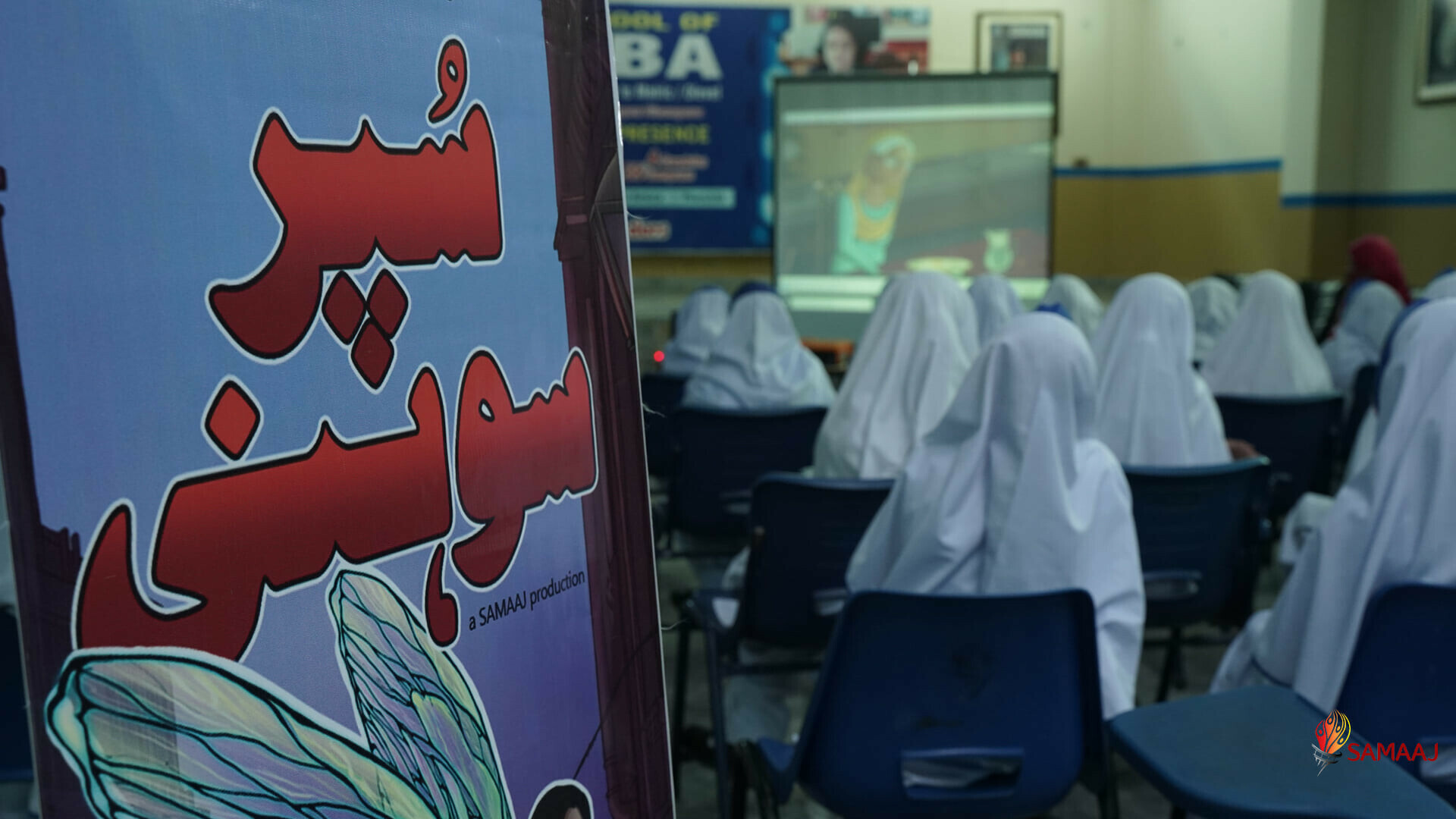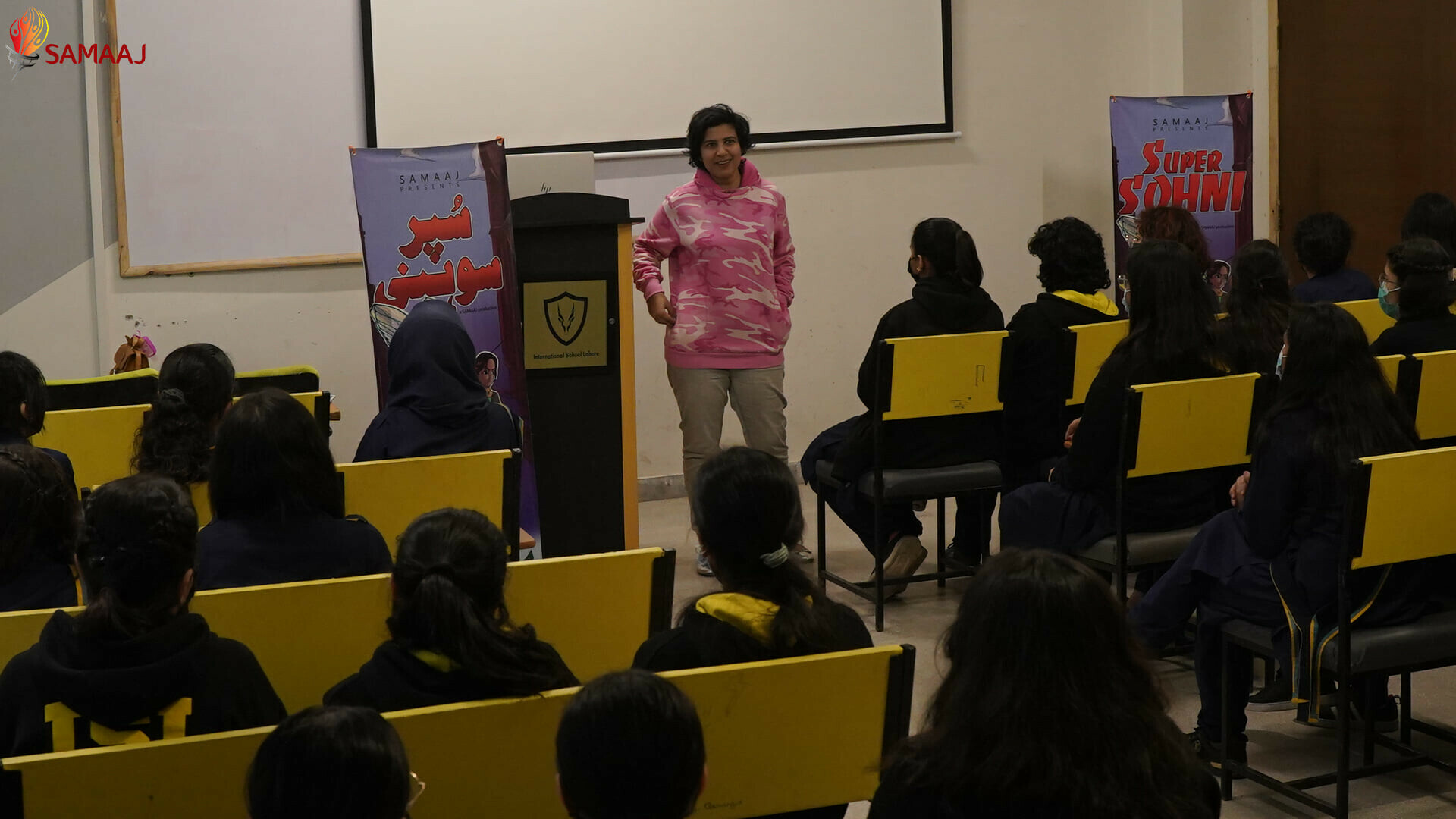Berlinale-approved shero Super Sohni is the feminist icon our children need
In 2021, there were 3,852 cases of child sexual abuse in Pakistan or over 10 assaults per day, according to statistics released last year by the Sahil organisation. Of this number, 54 per cent of the victims were girls and 46 per cent were boys. At a time when abuse is so prevalent, punishing the perpetrators is not enough and in many cases not guaranteed, so we must also equip our children with the necessary mental tools and guidance they need to protect themselves. That’s where Super Sohni comes in.
Based on a Sohni Mahiwal inspired shero, Super Sohni is an animated series in which the superhero fights against crimes of sexual abuse of young girls. Simultaneously raising awareness on the issue and providing young ones with the knowledge and confidence to keep themselves safe, the series was recently awarded the Talents Footprints Mastercard Enablement Programme at the Berlin International Film Festival.
Super Sohni falls under the umbrella of the Girls Sexual Abuse Prevention Programme (GSAP) initiated by SAMAAJ, “an artist-led organisation striving for an inclusive and equitable society using creative advocacy mediums”. Co-founder and filmmaker Ammar Aziz spoke to Images about their shero project, explaining where the idea came to them from.
“As individual multidisciplinary artists, as well as an organisation, we have always been passionate about utilising creative expressions to advocate for gender equality. After the brutal murder of Zainab Ansari from Kasur, we felt that something needed to be done, particularly to educate girl children, parents, and teachers on child abuse prevention,” he said. “It took us a couple of years after that horrific incident to conceive and create Super Sohni, a girl child superhero, as part of our larger project, the GSAP.”
The SAMAAJ team consulted several experts for their project. An abuse prevention manual for teachers, parents and guardians was developed in consultation with psychologist Dr Maryam Suheyl. Filmmaker and writer Mashal Peerzada’s insights were also sought for the genre and critical examination of the messaging in each episode from a feminist lens.
“Our animation process was humble,” he shared. “Instead of relying on commercial, fancy studios, we preferred to train underprivileged artists with little to no background in the medium to create something more organic and original.”
Borrowing some elements from Punjabi folklore, the shero’s character was inspired by Sohni Mahiwal as Sohni in the legendary tale “defies gender roles and patriarchal norms, just like our very own Sohni”.
Defining their primary audience as female children in hundreds of schools across Pakistan, Aziz said the team personally visited many schools in cities such as Peshawar, Kasur, Rawalpindi, Lahore and Islamabad. The series was played for the kids and some workshops were conducted with students and teachers. “The response has been terrific,” he added.

“Social media in general, YouTube and other short-form video sites in particular are full of sexual, sexist and cringe content that commodifies girls and women for more views. These sites are no longer safe and suitable for progressive, feminist media because in order to be widely seen on these sites, one has to often rely on ‘catchy’ thumbnails that are vulgar and disturbing, to say the least,” said the filmmaker, explaining that views are the least of their priorities. “[We] are interested in personally showcasing this important work to children (and adults) at schools and community centres all across the country and beyond.”
Aziz said the workshops and screenings they organised in schools were led by expert women facilitators and helped several girls speak up on the stigmatised issue. “Several schools expressed interest in and included interactive screenings of Super Sohni as part of their regular activities. Many parents were of the view that they always wanted to discuss this issue with their kids but found it extremely difficult. Super Sohni has provided them a safe space to share these issues with their kids,” he explained.

“Some international organisations working in the global south, including Global Girl Project, have been using this work in their workshops, and we can’t be happier about this impact and the response,” Aziz added.
Another of SAMAAJ’s star projects is the Kahani Project, a literary initiative designed around co-founder and journalist Sehyr Mirza’s book The Other in the Mirror. It brought together over 25 writers and translators and over 40 visual artists from Pakistan and India for a journey that transcends borders. The project is producing a mid-length hand-drawn film which will be released in the fall of 2023.
This is not it for Super Sohni though — there are some exciting things in the works, including a bi-lingual comic book and a stand-alone short film based on the character, set in a different universe. “Moreover, we will be taking the series to a lot more girls’ schools in Sindh, Khyber Pakhunkhwa, South Punjab and Central Punjab this year,” said Aziz.
There may also be a second season coming up — one that focuses on sexual abuse against young boys. “We believe that girls and boys have their unique struggles and dilemmas when it comes to child sexual abuse. For example, girl survivors and victims are more prone to victim blaming and other patriarchal cultural notions,” he explained. “However, we are seeking partners and would love to collaborate with some organisation to produce it.”
The jury for the 2022 award at the Berlinale included Joker and Deadpool actor Zazie Beetz. About SAMAAJ’s initiative, the jury wrote, “Having considered the details of the Girls’ Sexual Abuse Prevention Programme, the clarity of their goals and immediate need to act are both very compelling. The fact that they have structured the programme in a solid, cadenced way to tackle such an important issue also inspires confidence.”
Aziz said it meant a lot to get such recognition at one of the world’s leading film festivals and to be the only project representing Pakistan this year. “It has given us a lot of visibility, which is important for an initiative like this. It also reaffirms our belief that impactful work can be procured at home with limited resources and support.”
He said that projects like these are important because the “sick and dark” society we live in either resorts to victim blaming and shaming or calling for public hanging of the culprits instead of getting to the core of the issue. “This is exactly what the project does — it creates awareness and offers an inclusive safe space for girls and women to understand and respond responsibly,” he said.











